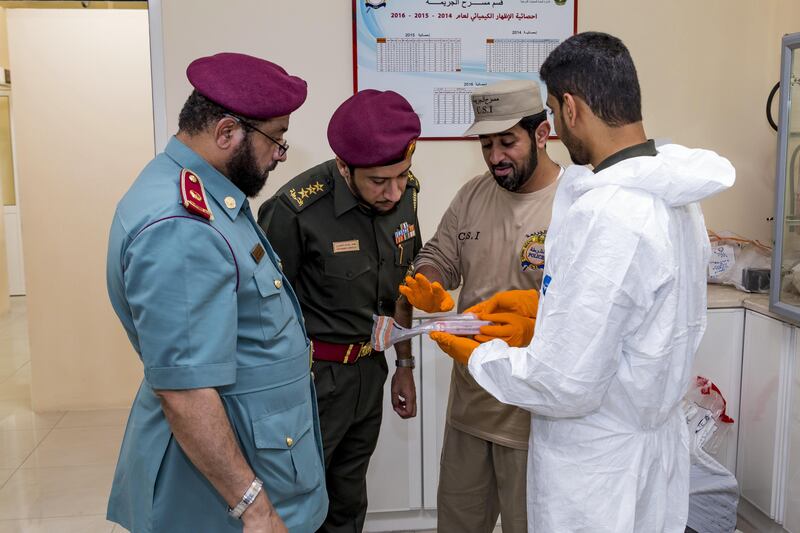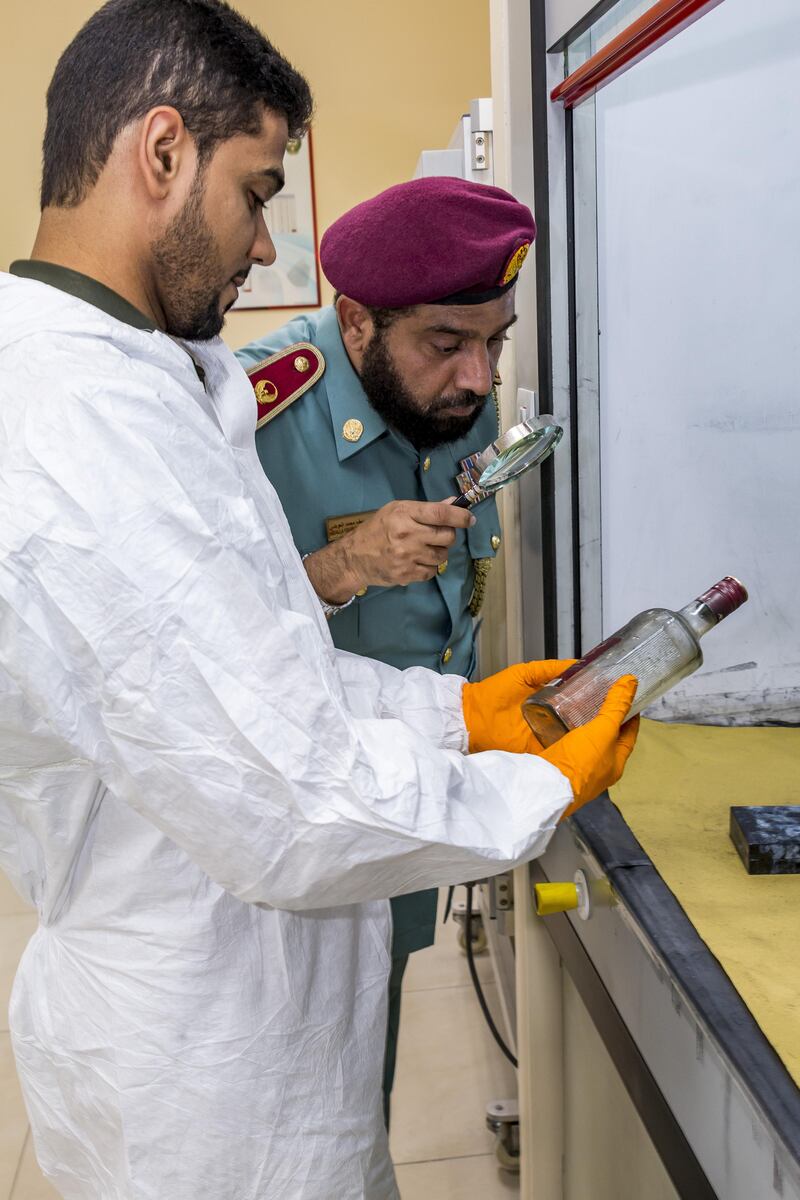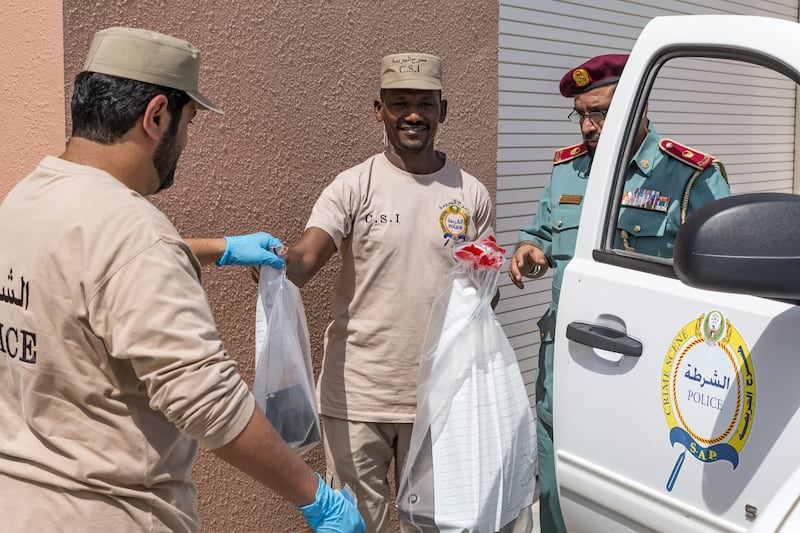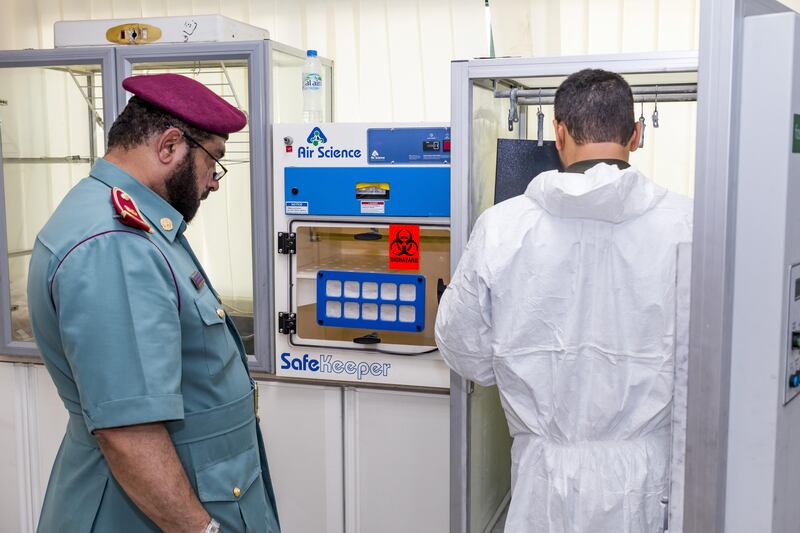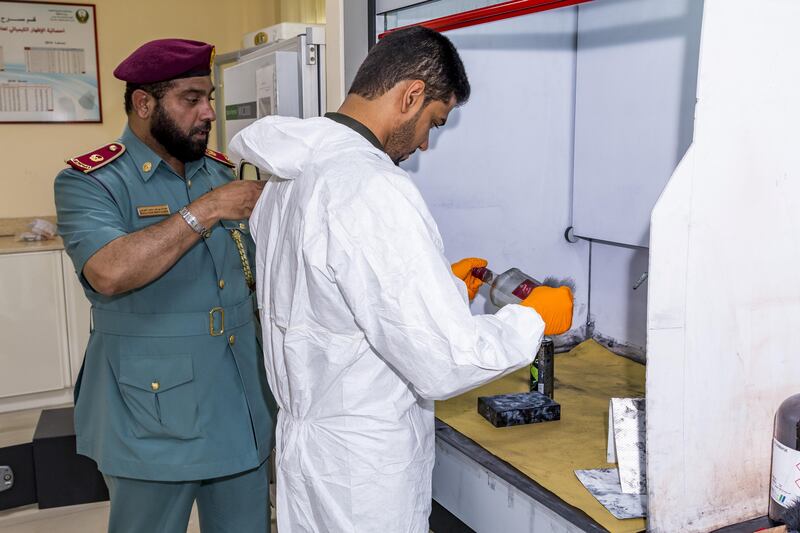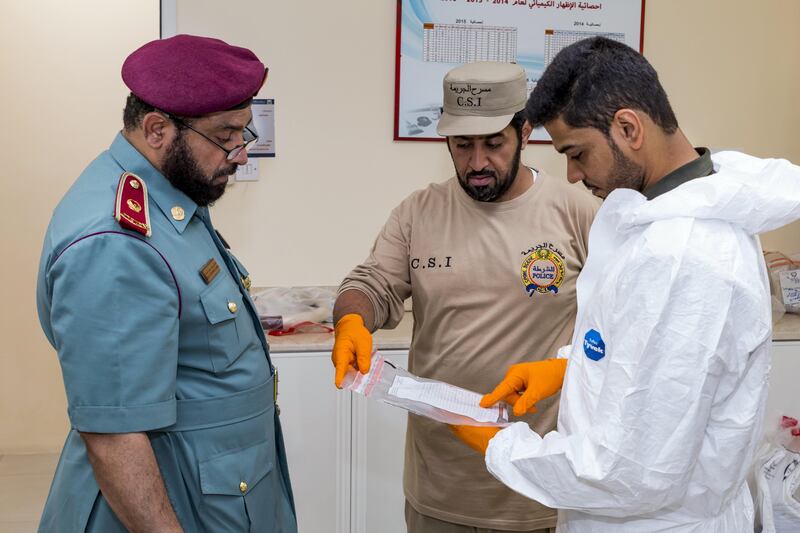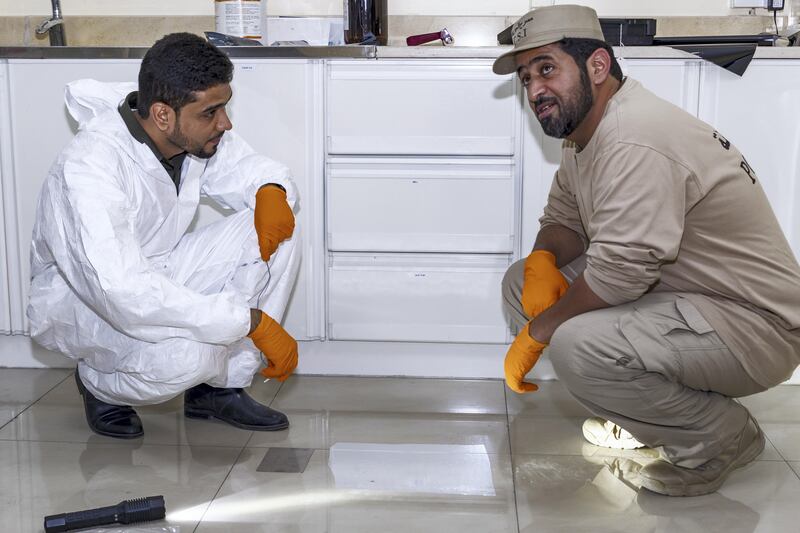Crime TV shows such as CSI and Law and Order portray a glitzy side of detective work that is great for the small screen but often they don’t reflect the harsh reality of the job for those who do it away from rolling cameras.
While crime scene investigators say their jobs are important and interesting, it can also be traumatic and consuming, and not many people have to see the things they see going to work each day.
“We finish office hours but can be called in to attend to a crime scene at any time during the day,” said Emirati Captain Mohammed Abdullah, a crime scene supervisor at Ajman Police CSI whose role is to oversees the evidence-gathering process.
“There are so many challenges, from the images we see to the effects of the things we see. For example, the odour of a dead body finds its way to our skin despite the special suits we wear.”
Lieutenant Nasser Al Thaheri, a crime scene examiner, said that the job isn’t for the faint-hearted. “Many times, we can’t even eat because we don't have the appetite,” he said.
Since its inception in 2011, Ajman’s CSI has worked on 4,517 cases, and only about 10 per cent of them are left unsolved.
“Our team is dispatched to a crime scene where they first work on preserving the place then collect all evidence available. They lift up all kinds of prints found, they collect and pack hard and biological evidence,” said Major Abdullah Yousuf Al Awadi, head of Ajman CSI.
_______________
Read more:
[ Forensic experts now able to identify Emirati criminals using DNA markers ]
[ Dubai forensic expert endures painstaking work but does it dutifully to uphold justice ]
_______________
Given the challenges of working at a crime scene, where gruesome, disturbing, or even repulsive sights are commonplace, Maj Al Awadi said CSI professionals have to be able to cope with whatever’s thrown at them and must possess observational and technical skills, to be able to identify and collect even the tiniest samples of evidence.
Crime scene investigators are responsible for identifying, collecting, preserving and packaging physical evidence, from firearms and fingerprints to DNA samples and photographic evidence. The evidence is then studied, analysed, tested and results are compared to existing data on their system. The data includes comprehensive information, from fingerprints and blood types to place of residence, work location and car plate number.
Despite the challenges of conducting intricate police work at sometimes alarming crime scenes, Maj Al Awadi said that one of the biggest issues is the preservation of crime scenes before they even arrive.
“If you are the first to a crime scene, don't touch anything, don't move a thing from its place and try to keep everyone away until experts arrive,” he said.
“The loss of evidence can mean a case goes unsolved and a criminal remains living freely in the community.”
Some victims of crime, he said, start cleaning up and destroy evidence in the process, while passers-by can also cause problems. “Curious individuals often destroy evidence while trying to find out what happened,” said Maj Al Awadi, who said the issue even extends to paramedics, though they are now getting training from police to avoid disturbing a scene.
For most CSI staff, there are some images that stay with them for life. For Sudanese expatriate Khalaf Allah Mohammed Yousuf, a fingerprint expert, that image is that of a 13-year-old Pakistani girl who was stabbed to death by a marriage suitor because her father thought she was too young to wed. It happened in 1993 but it’s an image that still haunts Mr Yousuf.
“I can’t forget that innocent face. I still imagine her holding her Quran and walking back home,” he said. “This case affected me greatly because I have daughters. But we don't carry it home, it must remain away from our personal life.”
The killer had waited for her to finish her Quran lesson and then stabbed her and fled in a taxi. When the taxi driver noticed his bloodied clothes, he said nothing but, while near Ajman Police headquarters, he drove into the premises, where he was surrounded by police.
Mr Yousuf said that the case was that serious that Ajman’s ruler, Sheikh Humaid bin Rashid Al Nuaimi, questioned the killer himself. The man was convicted and executed.
The evidence gathered by Ajman CSI has proven vital in numerous cases, and the convicting evidence has come in some strange places, such as DNA found in faeces left at the scene of a theft, saliva on the door of a car that a serial carjacker was trying to steal, or even evidence found on a leaf that convicted a man in the theft of a car showroom’s safe.
But regardless of the situation and the evidence, Maj Al Awadi said there is always something in common that helps them in finding the clues needed to solve a case.
“All cases have different conditions and circumstances but there is one rule in common - at the time of the crime itself, the criminal is detached from reality, rational thinking and in some cases from his humanity,” he said.
